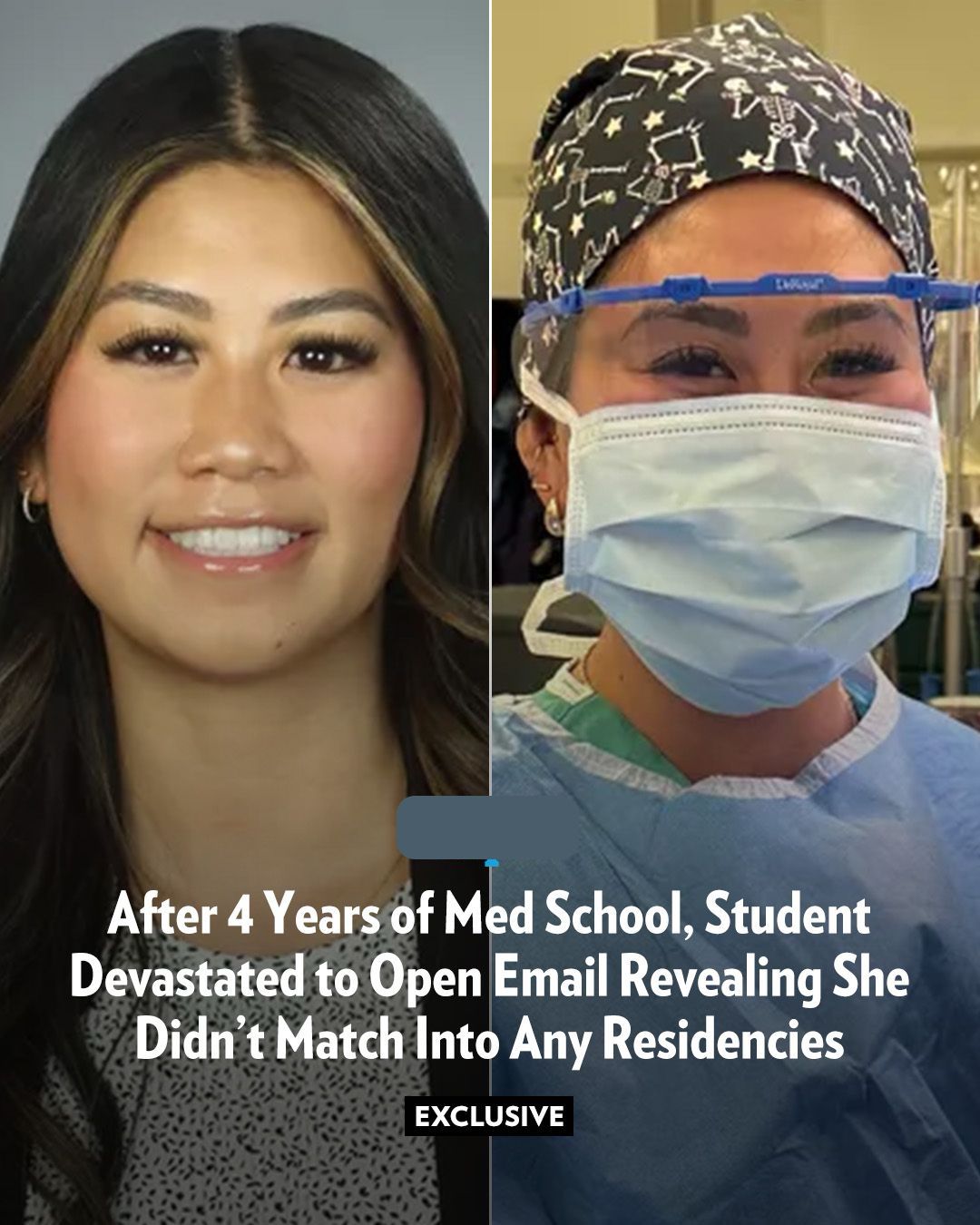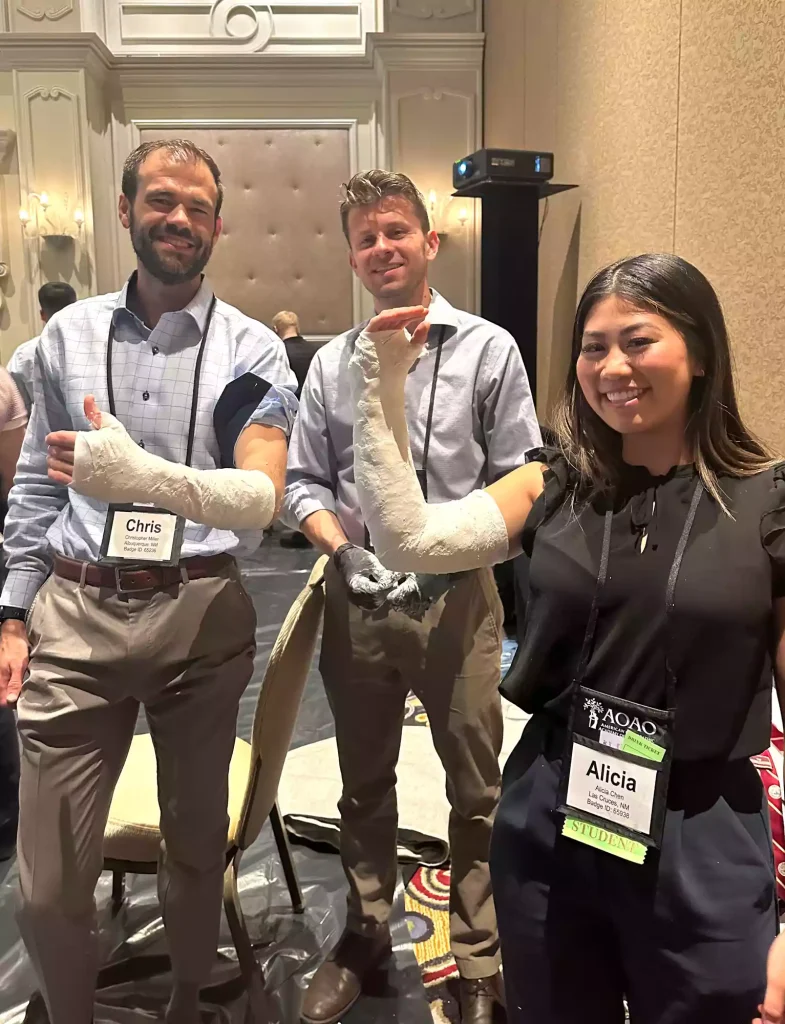After Four Years of Medical School, Student Heartbroken After Receiving Email Stating She Didn’t Match Into Any Residencies

For most medical students, Match Day is one of the most significant milestones in their careers, marking the moment they find out where they will begin their residency training. However, for some, it’s a day filled with disappointment rather than celebration. That was the reality for 27-year-old Alicia Chen, who recently completed four years at Burrell College of Osteopathic Medicine in New Mexico, only to find out that she did not match into any of the orthopedic surgery residency programs she had applied for.
Chen had spent years working toward her dream of becoming an orthopedic surgeon, a specialty known for its competitiveness. Despite having interviewed at four different programs and dedicating months to the application process, she received the devastating news on Monday, March 17—National Match Day—that she had not been selected.
Rather than keeping her disappointment private, Chen chose to share her experience on social media. She posted a heartfelt video on TikTok, where she candidly discussed the heartbreak of not matching while also reaffirming her determination to continue pursuing her dream.
Match Day: A Pivotal Moment for Medical Students
For many, March marks the beginning of spring, but for graduating medical students, it represents an intense period of anticipation and uncertainty. Match Week, which begins on a Monday, determines whether students have secured a residency placement, with results being announced via email. Those who receive the coveted message—“You have matched!”—spend the rest of the week in suspense until Friday, when they officially learn where they will be training.
For those who don’t match, the days following the initial results are filled with tough decisions and backup plans. They must navigate the Supplemental Offer and Acceptance Program (SOAP), which provides unmatched candidates with another chance to secure a position in unfilled programs. If that doesn’t work out, many students consider alternative paths, such as research years or additional training, to strengthen their applications for the next cycle.
Chen, unfortunately, found herself in the group of students who did not match this year, making an already stressful period even more difficult.

Sharing the Ups and Downs on Social Media
Chen never originally intended to document her journey to becoming a doctor online. Although her TikTok bio identifies her as a medical student, she mainly used the platform to share fun videos, personal interests, and lighthearted moments from her life. However, as Match Day approached, she realized it was an important milestone—one she wanted to share, regardless of the outcome.
“I remember watching Match Day videos every year,” she recalled. “They were always so exciting, and I loved seeing people celebrate their success. I wanted to be part of that moment, no matter what my own results were.”
When the disappointing email arrived, Chen still followed through with her plan. In a three-minute TikTok video, she shared the difficult news:
“Today was the day everyone found out if they matched, and I didn’t match.”
She admitted that the reality of not securing a residency was incredibly tough to process, but she hoped that her openness would help other students experiencing the same disappointment feel less alone.
“This whole day has been an emotional rollercoaster. I know the rest of the week, and probably the entire year, will be filled with challenges,” she told her followers. “It’s such a difficult feeling to accept that after four years of intense studying, clinical rotations, and dedication, I don’t have a job waiting for me at the end.”
A Competitive Specialty and a Tough Reality
Orthopedic surgery is one of the most competitive residency programs, with a limited number of spots available each year. Chen was well aware of the challenge but remained committed to pursuing this field.
“My passion for orthopedics started in high school when I ran track and field,” she explained. “I wanted to help athletes recover from injuries and keep people active. By the time I was in college, I knew for sure that this was the specialty I wanted.”
Medical students applying for orthopedic surgery typically go through a rigorous auditioning process, where they spend a month at different hospitals, working with residents and faculty members to demonstrate their skills and fit within the program.
Chen participated in this process, completing six audition rotations in hopes of standing out.
“It’s basically a month-long interview,” she described. “You’re trying to impress the program, answer questions well, manage on-call responsibilities, and build relationships with the team.”
Although she had strong experiences at several hospitals, one program stood out as her top choice. Despite this, she was unable to secure a spot.
She wasn’t the only one to receive disappointing news. Several of her friends from other medical schools also found themselves unmatched, facing the same uncertainty about their future.
“Most people do match, so not matching is less common, but I know a few others who are in the same situation as me,” she said. “It’s tough, but I knew from the start that this was a possibility.”
What’s Next? Exploring Alternative Paths
While not matching is a significant setback, it doesn’t mean the end of Chen’s medical career. There are still options available, and she remains hopeful about the next steps.
One potential opportunity is the SOAP process, which allows unmatched students to apply for any remaining residency openings in different specialties. Chen is actively participating in this program and hopes that she may still secure a spot in her desired field.
If SOAP doesn’t work out, she’s considering taking a research year, which would allow her to gain additional experience, build stronger connections in the field, and enhance her application for the next residency match cycle.
“I’m keeping my options open,” she said. “A lot of people I’ve met didn’t match on their first try. This doesn’t mean I won’t reach my goal—it just means it’ll take a little longer.”
Her optimism remains strong, and she’s determined to continue working toward her dream of becoming an orthopedic surgeon.
“This is just a temporary roadblock,” Chen affirmed. “I still believe in my passion for this field, and I’m willing to put in the work to get there, even if it takes an extra year.”
Resilience in the Face of Disappointment
Chen’s story is a testament to the resilience and determination required to succeed in the medical field. While the path to becoming a doctor is never easy, setbacks like these are a reality that many students face.
As she navigates her next steps, she hopes her experience will encourage others to remain hopeful, even in the face of disappointment.
“No matter how difficult this process is, I’m not giving up,” she said. “I know I’ll get there, one way or another.”
For now, Chen is focusing on exploring her options, supporting fellow unmatched students, and staying positive about the future. While this chapter didn’t go as planned, her journey as a future orthopedic surgeon is far from over.